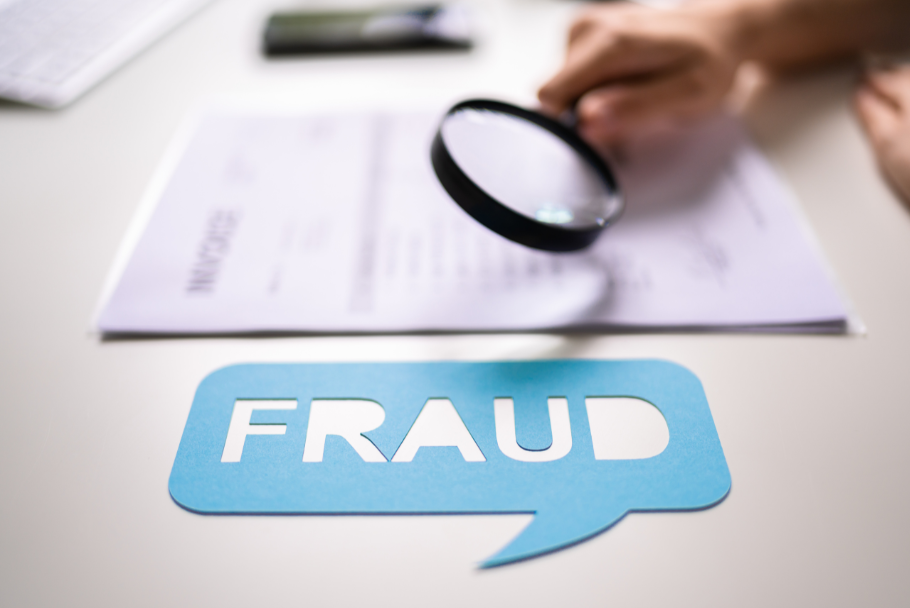
Holiday home rentals are a lucrative business. However, in recent years, the number of cases of fraud in the holiday home industry has increased. As a host, you naturally want to avoid becoming a victim of fraudsters who are after your property or your income. In this article, we show you how to recognise fraud, how to protect yourself against it and what you can do if it does happen.
How can I recognise a case of fraud?
In general, the risk of becoming a victim of fraud as a host of a holiday apartment or holiday house is greatest when you rent directly to customers, for example via your own website, a newspaper advertisement, social media or similar. Working with professional booking platforms, channel managers, agencies or tour operators significantly minimises this risk. Fraudsters use a variety of methods to gain access to holiday accommodation or obtain money. With the right precautions, you can protect yourself from becoming a victim. Be sure to watch out for the following signs to detect fraud early on:
1. Strange email address
Genuine guests usually have a normal email address. Fraudsters, on the other hand, often use addresses that contain a random combination of letters and/or numbers. If you receive a booking request from such an email address, caution is advised. This cannot happen to you as a host on atraveo by e-domizil, because we work with a large number of reputable partner portals. These portals – or we, at the latest – recognise fraudulent intentions in advance, so that a booking with a suspicious email address usually does not even reach you.
2. Excessive payments
 Fraudsters often pay more for the rent than is actually required. It is not uncommon for them to ask for the excess amount to be refunded afterwards. If this happens, you should be particularly vigilant, as this is a classic sign of an attempt at fraud. However, this cannot happen to you at atraveo by e-domizil, because we take care of the payment processing for you and transfer your correct rental income to you reliably! What's more, we are more than just a booking agency. We are a tour operator and therefore the customer's direct contractual partner – which means minimal risk for you.
Fraudsters often pay more for the rent than is actually required. It is not uncommon for them to ask for the excess amount to be refunded afterwards. If this happens, you should be particularly vigilant, as this is a classic sign of an attempt at fraud. However, this cannot happen to you at atraveo by e-domizil, because we take care of the payment processing for you and transfer your correct rental income to you reliably! What's more, we are more than just a booking agency. We are a tour operator and therefore the customer's direct contractual partner – which means minimal risk for you.
3. Different payment methods
If a guest requests a different payment method than the one agreed upon, this could also be an indication of fraud. Fraudsters often try to make payments outside of secure systems – this makes them less easy to track and allows them to escape the situation more easily. In this way, they often gain access to sensitive data, which they then misuse for other purposes. As we handle the payment processing for you as the host, this cannot happen to you as an atraveo by e-domizil host.
4. Unclear or incorrect booking requests
If the request for your holiday home is unusually vague or full of errors, it could also be an attempt at fraud. You are renting out a holiday home by the lake, but the guest describes an apartment in the city in their request? Then you may be dealing with a fraudster. So make sure that the guest's details are complete and do not contradict the information you have provided in the advertisement.
5. Last-minute bookings
Fraudsters often resort to last-minute bookings in order to receive quick confirmation before their details can be thoroughly checked. If you do not check the guest's details carefully or skip this step altogether, you may miss important signs of a possible scam. However, no verification is necessary with us – when you rent with atraveo by e-domizil, you don't have to worry about scammers. We ensure that you only receive reliable and binding bookings from real customers.
6. Long stays
Fraudsters often book holiday homes for very long periods. The longer the rental period, the higher the rent to be paid and therefore the potential profit for the fraudsters.
7. Fake emails and phishing attempts
Fraudsters often send fake emails that look like official requests from well-known platforms or payment services. These emails can be used to steal your personal data, such as credit card numbers or passwords. Be critical of any emails that ask for sensitive data and, if you suspect fraud, contact the booking platform you used to market your holiday home.

Do you suspect that someone is illegally posing as atraveo by e-domizil?
8. False information when booking
A ‘false guest’ can only provide false information about their identity. If you encounter any suspicious contradictions, you should check the booking more closely.
9. Requesting a refund
Fraudsters often try to force a refund by threatening negative ratings, pretending to be a former guest, or even deliberately turning off the WiFi or doing similar things to cause inconvenience and opportunities for complaints. In such cases, you should seek assistance immediately and under no circumstances respond to the blackmail attempts! As an atraveo by e-domizil host, you are never liable for refunds to your guests. For all bookings we generate for you, we are the point of contact for any complaints and refunds.
How can I protect myself from fraud?
Now you know the tricks that fraudsters use. It's time to take some measures to protect yourself effectively against fraud:
1. Don't rent out yourself: Even if it promises you the biggest margin, direct sales of your holiday home is not only a lot of work, but also involves many risks. Not only are you the direct contractual partner of the customers, but you also have to take care of the entire payment process yourself. Unless you are dealing with regular guests whom you already know well, there is always a risk that you will encounter a ‘bad egg’.
2. Use a reputable partner to rent out your holiday home: With a channel manager and/or an established booking platform such as atraveo by e-domizil, you can protect yourself against fake bookings and fraudulent guests. Our platform and other comparable providers offer security mechanisms that reliably prevent fraud. In addition, we – and usually other platforms as well – take care of the entire payment process for you, which significantly minimises your risk.
3. Create a rental agreement:  If you do decide to rent out your property yourself, be sure to sign a rental agreement with your guests. To ensure that everything runs smoothly when renting out a holiday home, it is a good idea to make clear agreements from the outset. A written contract helps to avoid misunderstandings and ensures that both parties know exactly what they are getting into – for example, with regard to house rules, possible damage or arrival and departure times. Sorting out important points early on will save you a lot of discussion later on.
If you do decide to rent out your property yourself, be sure to sign a rental agreement with your guests. To ensure that everything runs smoothly when renting out a holiday home, it is a good idea to make clear agreements from the outset. A written contract helps to avoid misunderstandings and ensures that both parties know exactly what they are getting into – for example, with regard to house rules, possible damage or arrival and departure times. Sorting out important points early on will save you a lot of discussion later on.
4. Check your bookings carefully: If you are renting out your property yourself, take the time to check each booking and the guest in question carefully. Compare the information and check the payment details before accepting a booking.
5. Use secure payment methods: Credit card payments or established online payment services such as PayPal offer more security than bank transfers or even cash payments. You should strongly avoid the latter in particular. The former methods often offer better protection against fraud and chargebacks.
With us, you don't have to worry about payment processing – we will transfer your rental income reliably to the account you specified in the owner area – even before your guests arrive!
6. Only share necessary information: Avoid sharing sensitive information such as social security numbers or private bank details with guests. Stick to the absolute minimum necessary to protect yourself and your guests.
7. Watch out for phishing emails: Be careful with emails asking for sensitive information. Always check the sender and the content before clicking on links or passing on data.
What to do if you suspect fraud?
If you do become a victim of fraud, you need to act quickly. Here's what you should do in this case:

Contact the police
If you fear that you have been the victim of a fraudster, contact the police immediately. Provide them with all relevant information, such as the name, bank details and communication history of the suspected fraudster.
Inform the operator of the booking platform
If, contrary to expectations, the fraudulent booking was made via a professional booking platform, also report the fraud to the platform provider.
Keep your data
Save all evidence and details of the communication so that you have access to everything relevant in the event of legal clarification.
Conclusion
Unfortunately, fraud can also affect holiday home rentals, but with the right measures and careful checking of bookings, you can protect yourself. Use proven platforms such as atraveo by e-domizil, secure payment methods and always be vigilant when dealing with suspicious enquiries. This will ensure that you remain on the safe side as a holiday home host. If fraud does occur, act quickly and professionally to limit the damage.


